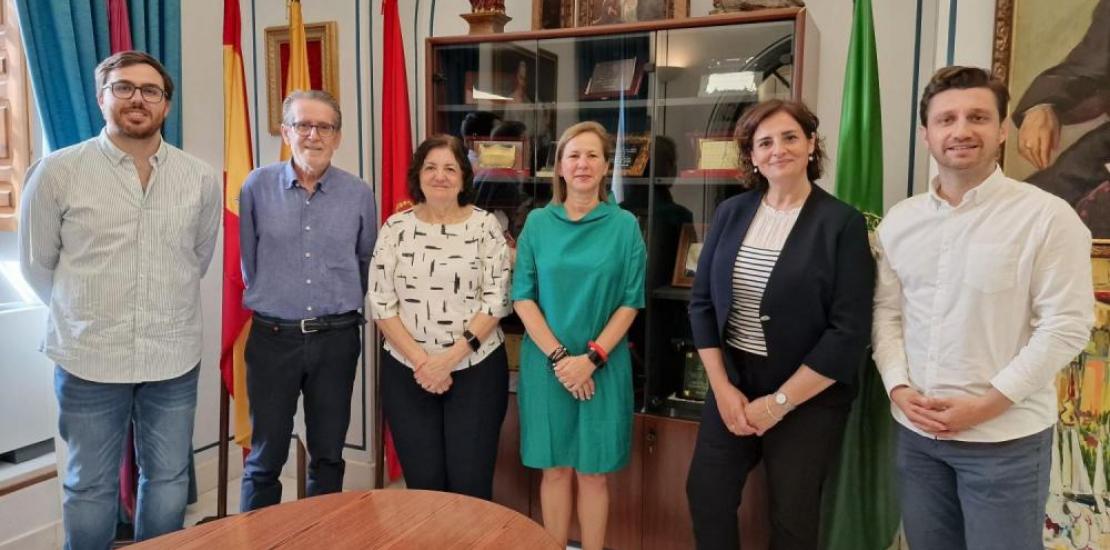UCAM will train translators from Madagascar for the medical campaign of the Itara NGO
Students from the University of Antananarivo will receive this online training to collaborate as interpreters with the Murcian doctors who will be sent to Tsihombe.
The Universidad Católica San Antonio de Murcia has signed a collaboration agreement with the University of Antananarivo (Madagascar) and the NGO Itara, a Murcian organisation committed to health humanitarian cooperation, with the aim of implementing an online medical-surgical training project designed for the students of the University of Antananarivo.
The agreement was signed in the Los Jerónimos Monastery by the UCAM President, María Dolores García Mascarell, the Dean of the Faculty of Education, Juana Mulero, and the Director of the Bachelor's Degree in Translation and Interpreting, Mar Sánchez Bover. Representing the NGO Itara were José Gil, President of the NGO and surgeon at the Virgen de la Arrixaca Hospital, and Álvaro Cerezuela, Vice-President of the organisation.
Following the signing of the agreement, Juana Mulero said, ‘UCAM will provide language training on specific medical terminology for the students of the University of Antananarivo who will be collaborating with the doctors of the Itara Foundation’. The first programme is starting immediately with ten students from the final years of the Bachelor's Degree in Hispanic Studies at the University of Antananarivo who will be collaborating in a medical-surgical campaign that the NGO Itara will be undertaking in Tsihombe (Androy Region, Madagascar) from 17 August onwards.
José Gil, President of Itara, highlighted the significance of this initiative as ‘knowing French or English is often not enough; local people have their own tribal dialect, the one they know best, and there is no way of communicating with them. We knocked on several doors and UCAM welcomed us from the onset to develop this project. We are very happy because the Malagasy population will be able to connect with us, which will be very positive when preparing the interventions.’
This project aims not only to improve healthcare in disadvantaged communities in Madagascar, but also to promote local development and training leading to sustainable impact.




